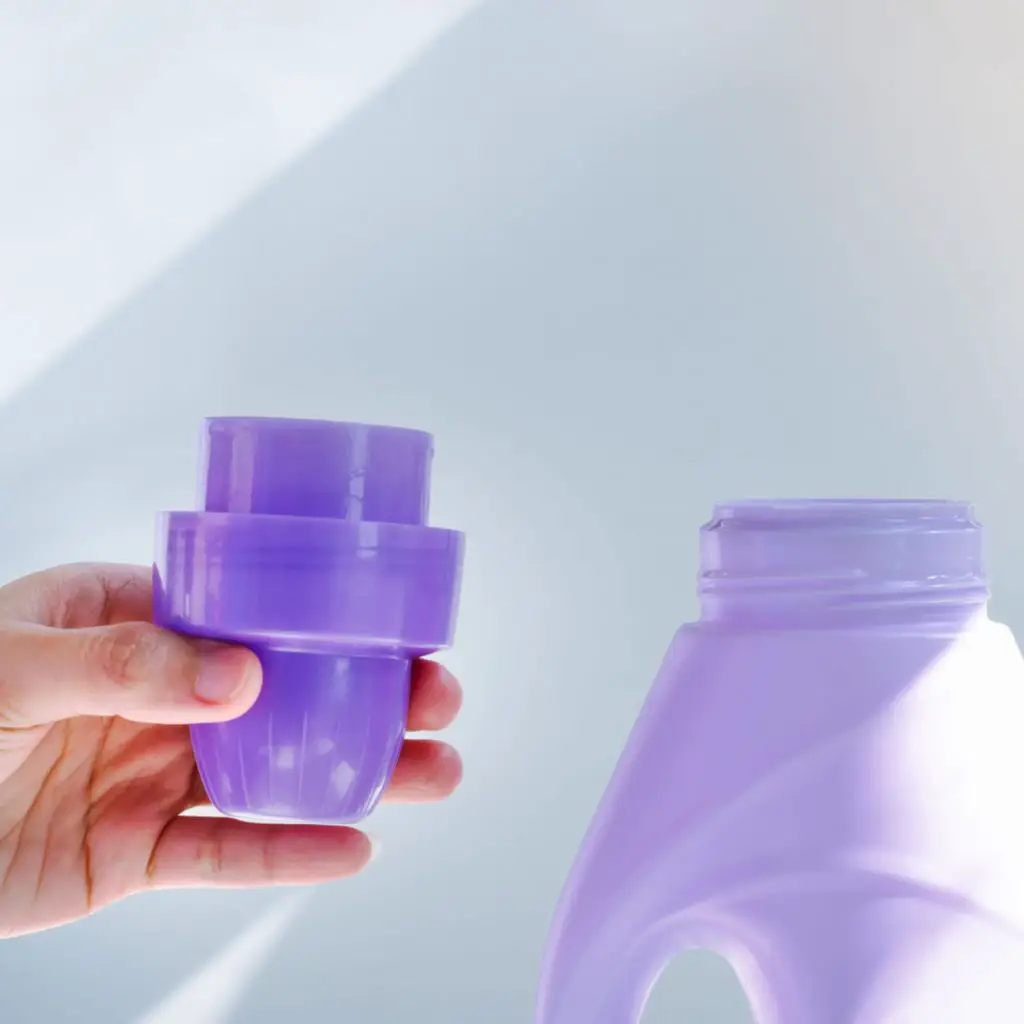Want to make your cotton fabric feel softer than ever? Look no further! In this article, we’ll show you how to easily soften cotton fabric using simple methods you can try at home.
From using fabric softener in the wash to trying natural alternatives like vinegar, we’ve got you covered.
Say goodbye to rough, scratchy cotton and hello to luxurious softness. Get ready to transform your fabrics into a cozy oasis!
Table of Contents
Understanding Cotton Fabric
Cotton fabric is known for its softness and breathability. Understanding cotton production and the different types of cotton fabric can help you make informed decisions when it comes to choosing the right fabric for your needs.
Cotton production involves several steps, starting with the cultivation of cotton plants. These plants are grown in warm climates, such as the southern United States, India, and China. After the cotton plants mature, the fluffy white fibers are harvested and processed to remove impurities. The fibers are then spun into yarn, which is used to create different types of cotton fabric.
There are various types of cotton fabric available, each with its own unique characteristics. Some common types include jersey, flannel, twill, and denim. Jersey cotton fabric is lightweight and stretchy, making it ideal for t-shirts and casual garments. Flannel cotton fabric is soft and warm, perfect for cozy pajamas and blankets. Twill cotton fabric has a diagonal weave pattern, giving it a durable and sturdy quality. Denim cotton fabric is known for its durability and is commonly used for jeans and jackets.
Preparing Cotton Fabric for Softening
Before starting the softening process, it’s important to prepare the cotton fabric properly. By taking the time to prepare your cotton fabric, you can ensure that it becomes soft and comfortable to wear.
One of the first steps in preparing cotton fabric for softening is to pre-wash it. This helps to remove any chemicals or dirt that may be present in the fabric, allowing it to become softer. Additionally, using a fabric softener during the wash cycle can further enhance the softness of the fabric.
Another method to prepare cotton fabric for softening is to soak it in a mixture of water and vinegar. This helps to break down any stiffness in the fabric and allows it to become softer.
Finally, drying the cotton fabric on a low heat setting in the dryer or air-drying it can also contribute to its softness.
Using Fabric Softener in the Wash
After pre-washing, it’s important to use fabric softener during the wash cycle to enhance the softness of your cotton fabric. Fabric softener helps to relax the fibers, reduce static, and make your clothes feel smoother and more comfortable against your skin.
One popular alternative to liquid fabric softener is using dryer balls. These small, rubber or wool balls are placed in the dryer with your clothes and help to fluff and separate the fabric, allowing air to circulate more freely. This can result in softer and less wrinkled clothes.
In addition to using fabric softener or dryer balls, you can also benefit from air drying your cotton fabric. Air drying helps to maintain the fabric’s natural softness and prevents damage that can occur from high heat in the dryer. Hanging your clothes on a clothesline or using a drying rack allows them to naturally air dry, giving them a fresh and soft feel.
It’s important to note that air drying may take longer than using a dryer, but the benefits to your cotton fabric are worth the wait. So next time you do laundry, don’t forget to add fabric softener, consider using dryer balls, and opt for air drying for the softest cotton fabric possible.
Trying Natural Fabric Softening Methods
One popular natural alternative to liquid fabric softener is using vinegar in the rinse cycle to help relax the fibers and reduce static in your clothes. Natural fabric softening methods have gained popularity in recent years due to concerns about the chemicals found in synthetic softeners. Unlike synthetic softeners, which often contain harmful ingredients such as phthalates and synthetic fragrances, vinegar is a safe and eco-friendly option.
In addition to being a natural alternative, using vinegar as a fabric softener offers several benefits for your cotton clothes. Firstly, it helps to remove any leftover detergent residue, resulting in cleaner and fresher-smelling garments. Secondly, vinegar helps to soften the cotton fibers, making them feel more comfortable against your skin. This is particularly beneficial for those with sensitive skin or allergies. Lastly, vinegar can also help to prevent color fading, keeping your cotton clothes looking vibrant and new for longer.
To use vinegar as a fabric softener, simply add half a cup of white vinegar to the rinse cycle of your washing machine. Be sure to check your machine’s manual to ensure compatibility. You’ll be amazed at the results – soft, static-free clothes that are gentle on your skin and the environment.
Using Vinegar to Soften Cotton Fabric
Did you know that vinegar can be used as a natural fabric softener for cotton?
Vinegar’s acidic properties help to break down the residue left behind by detergents, resulting in softer and more comfortable cotton fabrics.
If you’re looking for alternative cotton softeners, consider using baking soda, which can also help to soften and freshen your cotton garments.
Vinegar’s Fabric Softening Properties?
To soften your cotton fabric, you can try using vinegar as it has fabric softening properties. Vinegar is not only a great cleaning agent, but it also offers several benefits when used in laundry.
| Benefit | Explanation |
|---|---|
| 1. Softens fabric | Vinegar helps to break down the minerals and residue that can make your cotton fabric feel stiff. It leaves your clothes feeling soft and comfortable. |
| 2. Removes odors | Vinegar is known for its ability to neutralize odors. Adding vinegar to your laundry can help eliminate any unpleasant smells, leaving your cotton fabric fresh and clean. |
| 3. Brightens colors | Vinegar can act as a natural fabric brightener, helping to revive dull or faded colors in your cotton clothing. It can leave your fabric looking vibrant and new. |
Alternative Cotton Softeners?
Adding vinegar to your laundry routine can provide a natural alternative for achieving softer and fresher cotton fabric. If you’re looking for alternative cotton softeners, there are a few homemade options you can try.
One option is using baking soda, which helps to break down any residue or build-up on your clothes, leaving them feeling soft and clean.
Another option is using Epsom salt, which can help to soften the water and make your cotton fabric feel smoother.
Additionally, you can make your own fabric softener spray by combining water, hair conditioner, and vinegar in a spray bottle. This mixture can be sprayed onto your cotton clothes before drying, and it will leave them feeling soft and smelling fresh.
Try these homemade fabric softeners as an alternative to store-bought options for achieving softer, more comfortable cotton fabric.
Trying Commercial Fabric Softener Alternatives
Looking for alternatives to commercial fabric softeners? Interested in natural fabric softeners or homemade solutions?
In this discussion, we will explore different options for softening your clothes without the use of traditional fabric softeners.
Natural Fabric Softeners?
Yes, there are natural alternatives to chemical fabric softeners that can effectively soften your cotton fabric. Natural fabric softeners, such as vinegar, baking soda, and wool dryer balls, offer several benefits over their chemical counterparts.
Firstly, they are environmentally friendly and do not contain harsh chemicals that can irritate your skin or damage the fabric. Secondly, natural fabric softeners are cost-effective, as they are often cheaper than commercial options. Additionally, these natural alternatives are hypoallergenic and safe to use on sensitive skin or for individuals with allergies.
Homemade Softening Solutions?
There’s a variety of homemade solutions that can effectively make your clothes feel softer without the use of chemicals. These homemade softening methods have several benefits.
First, they are cost-effective, as they use common household ingredients. For example, adding a cup of vinegar to your laundry during the rinse cycle can help break down mineral deposits and leave your clothes feeling soft.
Second, homemade softeners are environmentally friendly, as they do not contain harsh chemicals that can harm the planet.
Third, they are gentle on your skin, especially if you have sensitive skin or allergies. Some popular homemade softening solutions include using baking soda, white vinegar, or wool dryer balls.
Experiment with these methods to find the one that works best for you and enjoy the benefits of softer, chemical-free clothes.
Using Dryer Sheets for Softening Cotton Fabric
Dryer sheets can be used to soften cotton fabric. They are a convenient and widely used solution for achieving soft and comfortable clothes. Here are some benefits of using dryer sheets:
- Reduce static: Dryer sheets help eliminate static electricity, making your cotton fabric less likely to cling to your body or other surfaces.
- Fresh scent: Dryer sheets leave a pleasant fragrance on your clothes, giving them a fresh and clean smell.
- Variety of scents: There are numerous scents available, allowing you to choose the one that suits your preference.
- Mask odors: Dryer sheets can help mask any unpleasant odors that may be present on your cotton fabric.
While dryer sheets are commonly used, there are some alternatives you can consider if you prefer to avoid them:
- Wool dryer balls: These reusable balls can help soften your cotton fabric and reduce drying time.
- Vinegar: Adding a small amount of vinegar to your laundry can act as a natural fabric softener.
Tips for Maintaining Softness in Cotton Fabric
To maintain the softness of your cotton clothes, it’s important to follow proper washing and drying techniques.
Cotton is a versatile and comfortable fabric that can feel even softer against your skin with a little extra care.
First, always check the care label on your cotton garments for specific instructions.
When washing, use a gentle cycle and cold water to prevent shrinkage and preserve the fabric’s softness.
Avoid using harsh detergents or bleach, as they can damage the fibers. Instead, opt for a mild, pH-neutral detergent.
After washing, air drying is the best option for softening cotton fabric. The heat from the dryer can cause the fibers to become rough.
If you prefer to use a dryer, set it to a low heat or delicate cycle, and remove the clothes while they are still slightly damp. This will help retain their softness.
Additionally, adding a fabric softener or vinegar to the rinse cycle can also help soften cotton fabric.
The benefits of soft cotton fabric are numerous. Soft cotton feels luxurious and comfortable against your skin, making it ideal for everyday wear.
It also helps to regulate body temperature, keeping you cool in hot weather and warm in cool weather.
Cotton’s breathability and moisture-wicking properties make it a popular choice for activewear and sleepwear.
Conclusion
So there you have it – a complete guide on how to soften cotton fabric.
By understanding the nature of cotton fabric and following the right steps, you can achieve the desired softness.
Whether it’s using fabric softener in the wash, trying natural methods like vinegar, or using commercial alternatives, there are various options to choose from.
Additionally, using dryer sheets and following tips for maintenance can help you maintain the softness of your cotton fabric for longer.
So go ahead and give these methods a try to enjoy the soft and cozy feel of your cotton clothing and linens.
- Tetron Fabric for Marine Applications: Durability and Use Cases - June 18, 2025
- Tetron Fabric for Outdoor Furniture: Weather Resistance and Care - June 18, 2025
- Tetron Fabric for Wall Coverings: Style and Application Tips - June 18, 2025




